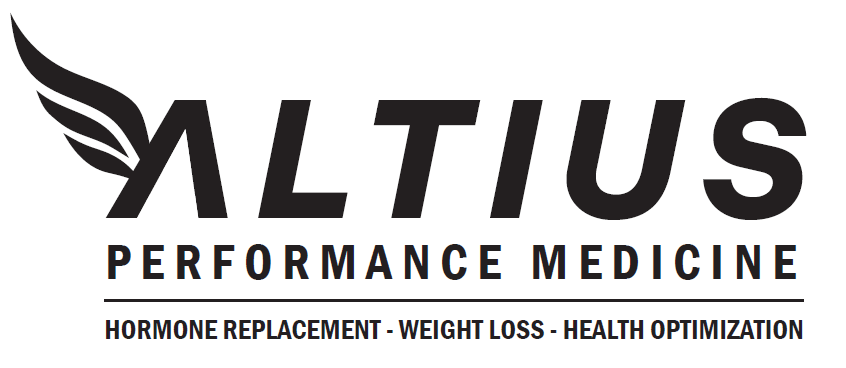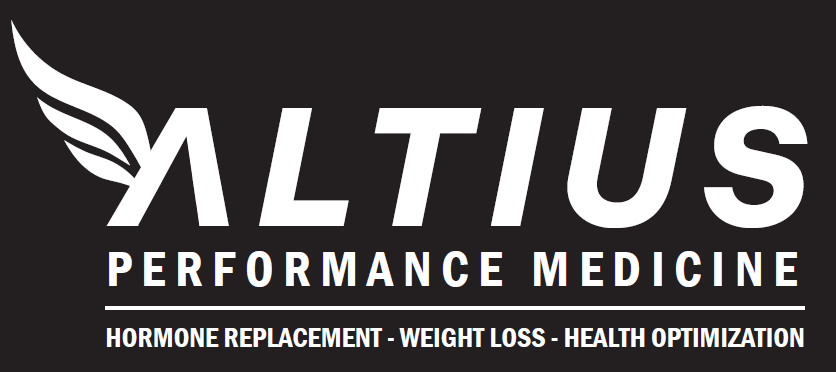Hormone Replacement Therapy: Understanding, Expectations, and Considerations
Hormone replacement therapy (HRT) has emerged as a viable option for individuals seeking to address hormonal imbalances, manage symptoms of aging, or alleviate specific health concerns. This comprehensive guide aims to delve into the realm of hormone replacement therapy, shedding light on its purpose, process, potential benefits, and what individuals can expect when considering this treatment.
Understanding Hormone Replacement Therapy
Hormones play a pivotal role in regulating numerous bodily functions, including metabolism, reproductive health, mood regulation, and overall vitality. Hormone replacement therapy involves supplementing or replacing hormones that the body no longer produces in adequate amounts. Common hormones targeted in HRT include estrogen, progesterone, testosterone, and thyroid hormones.
Purpose and Goals of Hormone Replacement Therapy
Managing Menopause Symptoms
In women, menopause marks the cessation of menstrual cycles and a decline in estrogen and progesterone production. Hormone replacement therapy aims to alleviate menopausal symptoms such as hot flashes, vaginal dryness, mood swings, and sleep disturbances.
Addressing Andropause
For men, andropause refers to a decline in testosterone levels as they age, leading to symptoms like decreased libido, fatigue, muscle loss, and mood changes. Testosterone replacement therapy can help manage these symptoms and improve overall well-being.
Correcting Hormonal Imbalances
Hormonal imbalances can occur due to various factors, including medical conditions, stress, or aging. HRT seeks to restore hormonal balance, addressing symptoms and improving the quality of life for individuals experiencing imbalances.
Types of Hormone Replacement Therapy
Estrogen and Progesterone Therapy: For women undergoing menopause, estrogen therapy (ET) and combined estrogen-progesterone therapy (EPT) are common. EPT is specifically recommended for women who have not had a hysterectomy to reduce the risk of uterine cancer associated with estrogen-alone therapy.
Testosterone Replacement Therapy: Testosterone therapy, primarily used in men experiencing andropause or low testosterone levels, can involve injections, patches, gels, or implants to supplement testosterone levels.
Thyroid Hormone Therapy: Individuals with hypothyroidism, a condition characterized by an underactive thyroid gland, may undergo thyroid hormone replacement therapy to regulate metabolism and alleviate associated symptoms like fatigue, weight gain, and cold sensitivity.
What to Expect from Hormone Replacement Therapy
Initial Consultation and Evaluation: The journey with hormone replacement therapy typically begins with a comprehensive evaluation by a healthcare provider. This involves discussing medical history, and current symptoms, and undergoing tests to assess hormone levels and overall health status.
Personalized Treatment Plan: Based on the evaluation, a healthcare provider will create a personalized treatment plan tailored to the individual’s needs. This plan includes the type of hormone replacement, dosage, method of administration, and monitoring schedule.
Monitoring and Adjustments: Regular follow-up appointments are crucial to monitor hormone levels, assess treatment efficacy, and address any side effects or concerns. Adjustments to the treatment plan, such as dosage modifications or changes in medication form, may be made based on these assessments.
Symptom Relief and Improvement: Individual responses to hormone replacement therapy vary. Some individuals may experience relief from symptoms relatively quickly, while others might notice gradual improvements over time. Patience and consistent adherence to the treatment plan are essential.
Potential Side Effects and Risks: Like any medical treatment, hormone replacement therapy carries potential risks and side effects. These may include breast tenderness, bloating, mood swings, increased risk of blood clots, and in some cases, an exacerbation of certain health conditions. It’s crucial to discuss these risks with a healthcare provider before initiating therapy.
Considerations
Hormone replacement therapy can offer significant relief and improvement in quality of life for individuals experiencing hormonal imbalances or symptoms associated with aging. However, the decision to undergo HRT should be made in consultation with a qualified healthcare provider. Understanding individual health status, risks, and potential benefits is crucial in making an informed choice regarding hormone replacement therapy. By considering personal health needs, maintaining open communication with healthcare providers, and adhering to monitoring protocols, individuals can navigate hormone replacement therapy with greater confidence and achieve desired outcomes in managing hormonal imbalances and related symptoms.
Navigating Hormone Replacement Therapy in Austin, Texas: Choosing the Right Clinic for Personalized Care
Austin, Texas, renowned for its diverse healthcare landscape, offers numerous options for individuals seeking hormone replacement therapy (HRT). Hormone replacement therapy involves the administration of hormones to address imbalances or deficiencies commonly associated with conditions like menopause, andropause, or hormonal disruptions due to aging or medical reasons. In Austin, various clinics and practitioners specialize in hormone replacement therapy, offering a range of services tailored to individual needs.
Initiating the search for an ideal hormone replacement therapy clinic in Austin often begins with comprehensive research. Individuals can utilize online resources, healthcare directories, and platforms specializing in hormone therapy to compile a list of clinics. Websites like Healthgrades, Zocdoc, or specific directories for hormone replacement therapy can offer insights into clinic locations, services provided, patient reviews, and overall reputation.
Referrals and recommendations also play a vital role in the decision-making process. Consulting primary care physicians, gynecologists, endocrinologists, or other healthcare providers for referrals to reputable hormone replacement therapy clinics in Austin is valuable. Additionally, seeking recommendations from friends, family, or acquaintances who have undergone hormone-related treatments provides personal insights and experiences.
When assessing potential clinics, evaluating the credentials, certifications, and expertise of healthcare professionals or practitioners is crucial. Individuals seeking hormone replacement therapy should look for board-certified professionals specializing in hormone therapy, endocrinology, or related fields. It’s essential to verify their experience, commitment to evidence-based practices, and proficiency in providing hormone replacement therapy.
Reviewing the clinic’s services and offerings is fundamental. Different clinics may specialize in various aspects of hormone replacement therapy, including treatments for menopause, andropause, thyroid disorders, or general hormone imbalances. Individuals should assess whether the clinic offers a comprehensive range of services aligned with their specific needs and health goals.
Considering the clinic’s reputation and patient reviews provides valuable insights into the quality of care offered. Online testimonials, forums, and social media platforms offer perspectives on patient experiences, professionalism of staff, treatment effectiveness, and overall patient satisfaction. Paying attention to recurring positive or negative comments helps gauge the clinic’s performance.
Selecting the right hormone replacement therapy clinic involves several key considerations. It’s crucial to prioritize clinics where healthcare professionals specialize in hormone replacement therapy and demonstrate expertise in addressing hormonal imbalances or related conditions. Opt for clinics that emphasize personalized care, thorough evaluations, and customized treatment plans tailored to individual needs.
The range of services offered by a clinic is an essential factor. Having access to a diverse array of hormone replacement therapy services that cater to various hormonal imbalances or conditions is beneficial. Whether it involves menopause management, testosterone replacement, thyroid hormone therapy, or other specialized treatments, a comprehensive range of services caters to diverse needs.
Personalized treatment plans are integral to successful hormone replacement therapy. Clinics that prioritize individualized treatment plans, considering a patient’s unique health status, symptoms, and goals, often yield better outcomes. Avoiding clinics that offer a generic, one-size-fits-all approach is essential.
Transparent communication and comprehensive consultations are paramount in choosing the right clinic. Clinics that prioritize clear communication, provide detailed information about treatment options, potential risks, expected outcomes, and associated costs ensure that patients are well-informed. Conducting thorough consultations to understand a patient’s concerns and goals before proposing treatment is essential.
Finally, assessing the facility’s standards and safety measures is crucial. Visiting the clinic or conducting thorough online research helps evaluate its cleanliness, professionalism, adherence to safety protocols, and compliance with regulatory standards. Ensuring that the clinic maintains a safe, hygienic environment for patients undergoing hormone replacement therapy is vital for a positive treatment experience.
Finding the right hormone replacement therapy clinic in Austin, Texas, involves thorough research, careful evaluation, and consideration of individual health needs and preferences. Prioritizing personalized care, experienced professionals, a comprehensive range of services, and clear communication throughout the treatment process helps individuals find a trusted clinic for safe and effective hormone replacement therapy tailored to their specific needs. Consulting with qualified healthcare professionals specializing in hormone replacement therapy provides personalized guidance and recommendations based on individual health status and goals, facilitating a well-informed decision-making process.

Hormone Replacement Therapy FAQ
1. What Is Hormone Replacement Therapy (HRT)?
Answer: Hormone Replacement Therapy (HRT) involves the supplementation or replacement of hormones that the body may no longer produce in adequate amounts due to various reasons, such as aging, medical conditions, or surgical interventions. Common hormones targeted in HRT include estrogen, progesterone, testosterone, and thyroid hormones. This therapy aims to alleviate symptoms associated with hormonal imbalances and improve overall well-being.
2. What Conditions or Symptoms Can Hormone Replacement Therapy Address?
Answer: Hormone replacement therapy can address a range of conditions and symptoms, including:
- Menopause Symptoms: For women experiencing menopause, HRT can help manage hot flashes, vaginal dryness, mood swings, and sleep disturbances.
- Andropause Symptoms: In men, HRT can address symptoms associated with low testosterone levels (andropause), such as decreased libido, fatigue, muscle loss, and mood changes.
- Hormonal Imbalances: HRT is also used to address hormonal imbalances resulting from medical conditions or aging, aiming to restore balance and alleviate associated symptoms.
3. What Are the Different Types of Hormone Replacement Therapy?
Answer: Hormone replacement therapy can come in various forms, including:
- Estrogen Therapy (ET): Involves the use of estrogen alone and is commonly used for women who have had a hysterectomy.
- Estrogen-Progesterone Therapy (EPT): Combines estrogen and progesterone and is typically recommended for women with a uterus to reduce the risk of uterine cancer associated with estrogen-alone therapy.
- Testosterone Replacement Therapy: Primarily used for men experiencing andropause or low testosterone levels, this therapy can be administered through injections, patches, gels, or implants.
- Thyroid Hormone Therapy: Used to address hypothyroidism by supplementing thyroid hormones to regulate metabolism and alleviate associated symptoms.
4. What Are the Benefits of Hormone Replacement Therapy?
Answer: The benefits of hormone replacement therapy vary based on individual needs and responses. Some potential benefits include:
- Alleviation of Symptoms: Reduction of menopause or andropause symptoms like hot flashes, mood swings, decreased libido, and fatigue.
- Improved Quality of Life: Enhanced energy levels, better sleep quality, and improved overall well-being.
- Bone Health: Preservation of bone density, reducing the risk of osteoporosis in some cases.
- Improved Sexual Function: Restoration of libido and improvement in sexual function for some individuals.
5. Are There Risks or Side Effects Associated with Hormone Replacement Therapy?
Answer: Hormone replacement therapy may carry certain risks and side effects, which can vary depending on factors such as the type of hormone, dosage, and individual health status. Some potential risks and side effects include:
- Increased Risk of Blood Clots: Especially in women using estrogen-based therapy.
- Breast Tenderness or Enlargement: Commonly associated with estrogen therapy.
- Mood Swings or Irritability: Seen in some individuals undergoing hormone replacement.
- Risk of Cardiovascular Issues: Debated and studied in relation to estrogen therapy, with varying opinions on its impact on heart health.
It’s essential to consult with a healthcare provider before considering hormone replacement therapy. They can assess individual health status, discuss potential benefits and risks, and create a tailored treatment plan that aligns with specific needs and goals. Regular monitoring and follow-up appointments are often recommended to track progress and adjust treatment if necessary.



